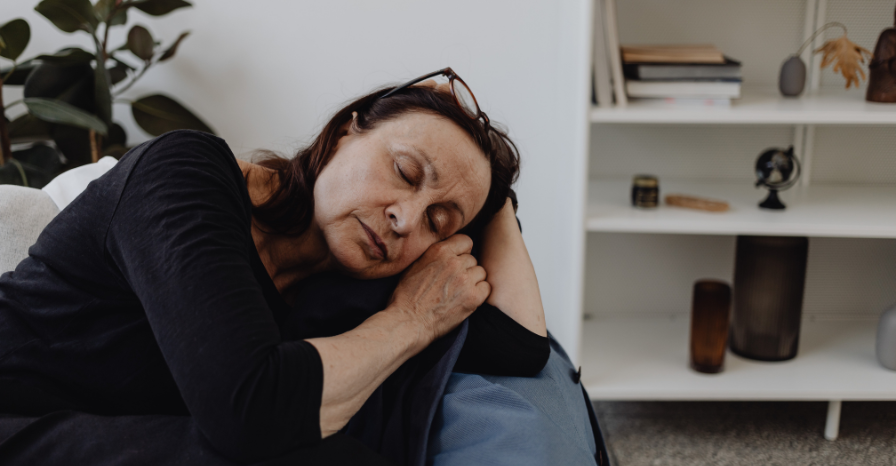
The Menopause Awareness Guide
MENOPAUSE |Natural or spontaneous menopause is a transition phase from the reproductive to the non-reproductive phase in a woman’s life.
Menopause (natural menopause) is defined by WHO as “the permanent cessation of menstruation resulting from the loss of ovarian follicular activity.”
Perimenopause is the period during which many physiological changes mark the transition into the final menstrual period of a woman and these changes are associated with climacteric symptoms.
Occurrence
Worldwide the mean age of menopause is in between 45 and 55 years.
It is often accompanied by undesirable experiences reflected in the reproductive, skeletal, cardiovascular and psychological system.
Symptoms
The symptoms can be divided into four categories: physical, vasomotor, psychological and urogenital. However, the kind of symptoms one experiences may depend on diet, culture, region, physical activity, geographical, environmental and genetic factors.
Physical Symptoms:
- Headache
- Lethargy
- Joint and muscular discomfort
- Flushed skin
Vasomotor Symptoms:
- Hot flushes
- Night sweats
Psychological symptoms:
- Depressive mood
- Irritability
- Anxiety
- Sleep disturbances
- Mental exhaustion
Urogenital Symptoms:
- Decrease in sexual desire
- Bladder problems
- Vaginal dryness
- Burning sensation while urinating
Facts
- 87.7% of Indian women of menopausal age suffer from menopausal symptoms.
- These symptoms often affect the quality of life in women with at least 20% of women facing severe symptoms.
- Nearly 4% of Indian women experience signs of menopause between 29 and 34 years of age, says a recent survey conducted by The Institute for Social and Economic Change (ISEC). The figure goes up to 8% in the case of women between 35 and 39 years of age.
- The estrogen imbalance can affect your bone, heart, breast and vaginal health.
What happens inside your body?
Treatment options
The current treatment option available is the Menopausal Hormone Therapy (MHT).
MHT usually involves treatment with female hormones, estrogen alone or estrogen plus synthetic progesterone.
However, studies have found out that MHT can have potential risks of developing breast and endometrial cancer, stroke and coronary artery events.
Alternate Options
Complementary & Alternative Therapy options include:
- Mind-Body Interventions: Cognitive Behavioural Therapy, Mindfulness-Based Stress Reduction, Yoga, Aromatherapy. [1]
- Herbal Products, Vitamins, and Supplements. [1]
- Whole System Alternative Medicine Approaches such as Homeopathy and Acupuncture. [1]
Unived’s Menopause Management
Unived’s Menopause Management is formulated to provide additional estrogen support to the body, and alters the estrogen generation process so that it produces beneficial estrogen and prevents the body from the shock of sudden drop of estrogen.

It contains a Genistein which the most abundant isoflavone in soy and is structurally similar to estrogen, Diindolylmethane (DIM) which is the component of cruciferous vegetables and KSM-66 which is the most potent Ashwagandha root extract available.
The blend also includes plant-based vitamins D3 & E in their most bioavailable forms and research based adequate dosage of minerals like Boron & Zinc.
 Mode of Action
Mode of Action
Tips to manage menopausal symptoms
- Maintain an active lifestyle: Regular exercise improves muscle strength, bone and heart health, cognition and quality of life. Pelvic exercises may help manage the menopausal symptoms. [2]
- Indulge in a healthy diet: Include seasonal fruits and vegetables, whole grain fibers, essential fatty acids. Avoid excess consumption of salt, sugar and fat. [2]
- Healthy lifestyle habits: Avoid smoking, limit your alcohol and caffeine consumption and maintain a healthy weight. [2]
- Meditation and Yoga can help you deal with the psychological symptoms associated with menopause.
Key Note
Menopause is a natural phenomenon in women but it may be accompanied by various unpleasant symptoms. The symptoms can be managed and the quality of life can be ameliorated. The discomforts of menopause are prevalent and it must be discussed and not concealed. We need to educate women to manage menopause as it can affect their bone, heart, vaginal and breast health along with their mental health and relationships.
References:
Johnson, A., Roberts, L. and Elkins, G., 2019. Complementary and Alternative Medicine for Menopause. Journal of Evidence-Based Integrative Medicine, 24, pp.2515690X1982938.
de Villiers, T., Pines, A., et al., 2013. Updated 2013 International Menopause Society recommendations on menopausal hormone therapy and preventive strategies for midlife health. Climacteric, 16(3), pp.316-337.
Choudhary, P., Singhania, K., Kalhan, M. and Kumar, T., 2020. Association of menopausal symptoms with overweight and obesity among rural middle aged women in North India: A population based study. Journal of Mid-life Health, 11(3), p.137.
Borker, S., Venugopalan, P. and Bhat, S., 2013. Study of menopausal symptoms, and perceptions about menopause among women at a rural community in Kerala. Journal of Mid-life Health, 4(3), p.182.



